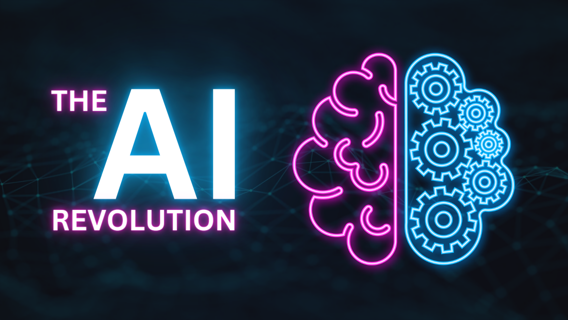
The AI revolution represents a monumental shift in human civilization, marked by the rapid progression and ubiquitous integration of artificial intelligence (AI) technologies into virtually every facet of modern life. Stemming from decades of research, innovation, and breakthroughs in computer science, the AI revolution is reshaping industries, economies, and societies worldwide, presenting both unprecedented opportunities and complex challenges.
At its core, the AI revolution is propelled by the exponential growth of computing power, coupled with advancements in algorithms and data availability. Machine learning, a subset of AI, lies at the heart of this revolution, enabling computers to learn from vast amounts of data and make predictions or decisions without explicit programming. This capability has led to transformative applications across diverse domains, from healthcare and finance to transportation and entertainment.
One of the most visible manifestations of the AI revolution is the proliferation of intelligent automation. AI-driven systems are increasingly automating routine tasks and augmenting human capabilities in fields such as manufacturing, logistics, and customer service. Robotic process automation (RPA) and autonomous vehicles exemplify this trend, streamlining operations, enhancing efficiency, and revolutionizing traditional workflows.
Furthermore, AI-powered insights are revolutionizing decision-making processes in businesses and governments. Through sophisticated analytics and predictive modeling, organizations can extract valuable insights from complex datasets, driving informed strategic decisions and optimizing resource allocation. From personalized recommendation systems in e-commerce to predictive maintenance in industrial settings, AI is revolutionizing how businesses operate and compete in the global marketplace.
In parallel, AI is revolutionizing healthcare, promising to revolutionize how diseases are diagnosed, treated, and managed. Machine learning algorithms analyze medical images with unprecedented accuracy, aiding in early detection of conditions such as cancer and accelerating drug discovery processes. Additionally, AI-driven virtual assistants and telemedicine platforms are expanding access to healthcare services, particularly in underserved regions.
The AI revolution also extends its reach into the realm of creativity and expression. Natural language processing (NLP) algorithms can generate human-like text, powering chatbots, virtual assistants, and content generation tools. Similarly, generative adversarial networks (GANs) are used to create lifelike images, videos, and music, blurring the lines between human and machine-generated content.
However, alongside its transformative potential, the AI revolution raises significant ethical, social, and economic considerations. Concerns about job displacement, algorithmic bias, data privacy, and autonomous weapon systems have prompted calls for responsible AI development and governance frameworks. Addressing these challenges requires interdisciplinary collaboration, regulatory oversight, and ongoing dialogue between policymakers, technologists, and society at large.
In conclusion, the AI revolution represents a paradigm shift of unprecedented magnitude, reshaping industries, economies, and societies worldwide.
As AI technologies continue to evolve and permeate every aspect of human existence, navigating the opportunities and challenges of this transformative era will require foresight, creativity, and a commitment to ethical innovation.
Embracing the potential of AI while safeguarding against its risks is essential to harnessing its full potential for the betterment of humanity.
Follow Md Azad Hossain to stay updated on their latest posts!
0 comments
Be the first to comment!
This post is waiting for your feedback.
Share your thoughts and join the conversation.
